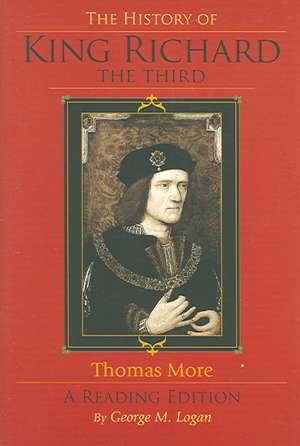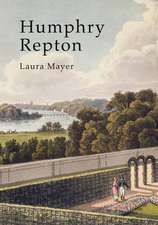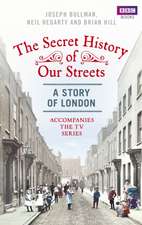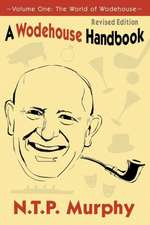The History of King Richard the Third – A Reading Edition
Autor George M. Loganen Limba Engleză Paperback – 2 noi 2005
Preț: 151.57 lei
Nou
Puncte Express: 227
Preț estimativ în valută:
29.00€ • 30.28$ • 24.00£
29.00€ • 30.28$ • 24.00£
Carte tipărită la comandă
Livrare economică 04-18 aprilie
Preluare comenzi: 021 569.72.76
Specificații
ISBN-13: 9780253217998
ISBN-10: 0253217997
Pagini: 208
Ilustrații: 5 illustrations
Dimensiuni: 140 x 215 x 21 mm
Greutate: 0.27 kg
Ediția:A Reading.
Editura: MH – Indiana University Press
ISBN-10: 0253217997
Pagini: 208
Ilustrații: 5 illustrations
Dimensiuni: 140 x 215 x 21 mm
Greutate: 0.27 kg
Ediția:A Reading.
Editura: MH – Indiana University Press
Recenzii
More's History is of great importance for the development of prose narrative in Tudor England, and equally for its stimulus to the drama. Apart from the heavy volumes of the Yale edition there has been no version that combines the latest scholarship with a handy and attractive format. The Indiana Reading Edition not only fills a painful gap but does so with distinction. George Logan has provided just the sort of masterly edition that one might expect from his earlier work on Utopia, and it is presented in a format that is both appealing and comprehensive. The History can prove a highly attractive text for students once they have some initiation into the language and the assumptions behind the work; all this is now provided in a volume that is elegantly designed and easy to handle. --Dominic Baker Smith, Professor of English (Emeritus), University of Amsterdam
Notă biografică
Sir Thomas More (7 February 1478 - 6 July 1535), venerated in the Catholic Church as Saint Thomas More,[7][8] was an English lawyer, social philosopher, author, statesman, and noted Renaissance humanist. He was also a Chancellor to Henry VIII, and Lord High Chancellor of England from October 1529 to May 1532.[9] He wrote Utopia, published in 1516,[10] about the political system of an imaginary island state.
More opposed the Protestant Reformation, directing polemics against the theology of Martin Luther, Huldrych Zwingli, John Calvin and William Tyndale. More also opposed King Henry VIII's separation from the Catholic Church, refusing to acknowledge Henry as Supreme Head of the Church of England and the annulment of his marriage to Catherine of Aragon. After refusing to take the Oath of Supremacy, he was convicted of treason and executed. On his execution, he was reported to have said: "I die the King's good servant, and God's first".
Pope Pius XI canonised More in 1935 as a martyr. Pope John Paul II in 2000 declared him the patron saint "of Statesmen and Politicians".[11][12] The Soviet Union in the early twentieth century honoured him for the purportedly communist attitude toward property rights in Utopia
Born on Milk Street in London, on 7 February 1478, Thomas More was the son of Sir John More,[16] a successful lawyer and later a judge[17], and his wife Agnes (née Graunger). He was the second of six children. More was educated at St Anthony's School, then considered one of London's best schools.[18][19] From 1490 to 1492, More served John Morton, the Archbishop of Canterbury and Lord Chancellor of England, as a household page.[20]:xvi Morton enthusiastically supported the "New Learning" (scholarship which was later known as "humanism" or "London humanism"), and thought highly of the young More. Believing that More had great potential, Morton nominated him for a place at the University of Oxford (either in St. Mary Hall or Canterbury College, both now gone).[21]:38
More began his studies at Oxford in 1492, and received a classical education. Studying under Thomas Linacre and William Grocyn, he became proficient in both Latin and Greek. More left Oxford after only two years-at his father's insistence-to begin legal training in London at New Inn, one of the Inns of Chancery.[20]:xvii[22] In 1496, More became a student at Lincoln's Inn, one of the Inns of Court, where he remained until 1502, when he was called to the Bar
More opposed the Protestant Reformation, directing polemics against the theology of Martin Luther, Huldrych Zwingli, John Calvin and William Tyndale. More also opposed King Henry VIII's separation from the Catholic Church, refusing to acknowledge Henry as Supreme Head of the Church of England and the annulment of his marriage to Catherine of Aragon. After refusing to take the Oath of Supremacy, he was convicted of treason and executed. On his execution, he was reported to have said: "I die the King's good servant, and God's first".
Pope Pius XI canonised More in 1935 as a martyr. Pope John Paul II in 2000 declared him the patron saint "of Statesmen and Politicians".[11][12] The Soviet Union in the early twentieth century honoured him for the purportedly communist attitude toward property rights in Utopia
Born on Milk Street in London, on 7 February 1478, Thomas More was the son of Sir John More,[16] a successful lawyer and later a judge[17], and his wife Agnes (née Graunger). He was the second of six children. More was educated at St Anthony's School, then considered one of London's best schools.[18][19] From 1490 to 1492, More served John Morton, the Archbishop of Canterbury and Lord Chancellor of England, as a household page.[20]:xvi Morton enthusiastically supported the "New Learning" (scholarship which was later known as "humanism" or "London humanism"), and thought highly of the young More. Believing that More had great potential, Morton nominated him for a place at the University of Oxford (either in St. Mary Hall or Canterbury College, both now gone).[21]:38
More began his studies at Oxford in 1492, and received a classical education. Studying under Thomas Linacre and William Grocyn, he became proficient in both Latin and Greek. More left Oxford after only two years-at his father's insistence-to begin legal training in London at New Inn, one of the Inns of Chancery.[20]:xvii[22] In 1496, More became a student at Lincoln's Inn, one of the Inns of Court, where he remained until 1502, when he was called to the Bar
Cuprins
Preface
Textual Practices
Introduction
Further Reading
Chronology
The History of King Richard the Third
Selective Glossary
Editorial Practices
Textual Notes
Appendix: Literary Relations
Index
Textual Practices
Introduction
Further Reading
Chronology
The History of King Richard the Third
Selective Glossary
Editorial Practices
Textual Notes
Appendix: Literary Relations
Index
Descriere
An accessible edition of this classic work, with modern English spelling and punctuation, and historical background.












